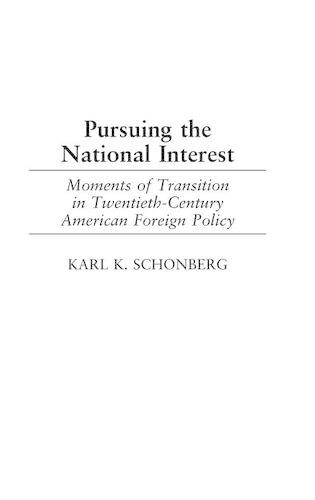
Pursuing the National Interest: Moments of Transition in Twentieth-Century American Foreign Policy
(Hardback)
Publishing Details
Pursuing the National Interest: Moments of Transition in Twentieth-Century American Foreign Policy
By (Author) Karl K. Schonberg
Bloomsbury Publishing PLC
Praeger Publishers Inc
30th October 2003
United States
Classifications
General
Non Fiction
327.73
Physical Properties
Hardback
296
Description
The history of twentieth-century American foreign policy presents an indictment of classical and structural realism and systemic theories of international relations more generally. Examining five crucial movements of transition in American foreign policy making - before and after each of the world wars and the end of the Cold War - Shonberg argues that the national interest resides mostly in the eye of the beholder, and that the idiosyncratic perceptions, beliefs, and values of individuals are of vital importance in the policy process. Thus, America's recent experiences in global politics, interpreted through the lens of national ideology, has defined and created the ultimate shape of a new foreign policy.
Reviews
Schonberg's book is an interesting and provocative read and is certainly a welcome antidote to realism and systemic theory which ignore the uniqueness of each political culture...-49th Parallel
"Schonberg's book is an interesting and provocative read and is certainly a welcome antidote to realism and systemic theory which ignore the uniqueness of each political culture..."-49th Parallel
Author Bio
KARL K. SCHONBERG is Assistant Professor in the Department of Government at St. Lawrence University in Canton, New York. He teaches International Politics.
